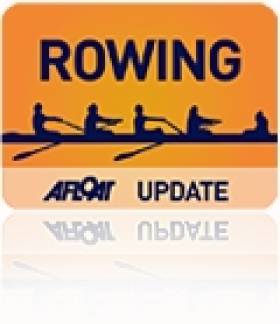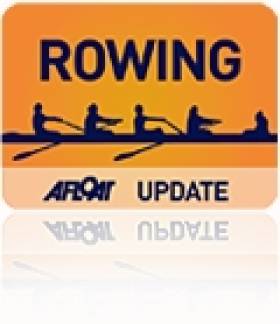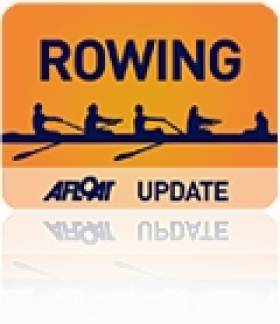Displaying items by tag: Anthony English
#ROWING: Anthony English lost out to Nick Purnell, an Australian Olympian in the Diamond Sculls at Henley Royal Regatta this morning. The Australian took almost a four-stone advantage into the cross-headwind conditions and he took a substantial lead early on and won easily for the second day in succession. Remarkably, Purnell was not ‘selected’ (seeded) by the stewards.
Henley Royal Regatta, Day Three (Selected Results; Irish interest)
Double Sculls Challenge Cup (Men, Open): Leander (J Collins, J Walton) bt Three Castles (D Neale, E Grigalius) 2l, 7 mins 48 secs.
Diamond Challenge Sculls (Men, Open Single): N Purnell (National Training Centre, Australia) bt A English (Nottingham RC) easily, 8:44.
English Turns Tables With Good Win at Henley
#ROWING: Anthony English won through to the quarter-finals of Henley Royal Regatta today in the prestigious Diamond Sculls. The 26-year-old former Ireland international was over two stone lighter than his opponent, Larry Wells, who took a considerable lead in the early stages as the two sculled into a headwind. But Mayo man English, who competes for Nottingham, kept going and won well at the end.
Henley Royal Regatta, Day Two (Selected Results; Irish interest)
Prince of Wales Challenge Cup (Men’s Quadruple Sculls, Intermediate): Tyrian Club and Thames RC bt Queen’s University (G McKillen, A Boreham, T Oliver, C Beck) 3l, 7:17.
Double Sculls Challenge Cup (Men, Open): Three Castles (D Neale, E Grigalius bt Roy Roy (C Owen, J Hale) 3l, 8:08.
Diamond Sculls (Men’s Single, Open): A English (Nottingham) bt L Wells (Thames) easily, 9:15.
Irish Rowing Crews Qualify For Henley Royal Regatta
#ROWING: The Lady Elizabeth coxed four and single sculler Anthony English both qualified for the main draw at Henley Royal Regatta today. The Lady Elizabeth crew of Brendan Smyth, Stuart King, Peter Waldron, David Meehan and cox Brendan Farrell will compete in the Britannia, while English, who has been based in Nottingham, is set for the the Diamond Sculls. It is the premier event for single scullers.
A number of Irish crews were not asked to pre-qualify. The Trinity senior eight will compete in the Temple Cup; Queen’s University have a quadruple scull in the Prince of Wales; Dave Neale and Eimantas Grigalius of Three Castles are entered in the Double Sculls.
Henley Royal Regatta – Qualifiers (Irish interest)
Diamond Sculls: A English
Britannia (Fours, coxed): Lady Elizabeth


























































